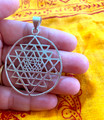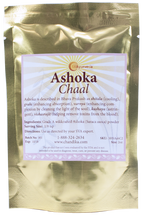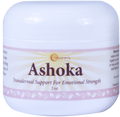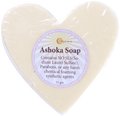 Loading... Please wait...
Loading... Please wait...Categories
- Ashwagandha
- Magnesium
- Turmeric
- Vitamin D
- ASHOKA formulations
- Bone Care
- Creams
- Eyes, Ears, Sinus, Throat
- Immune
- Dosha:Kapha
- Lip balms
- Liver & Kidneys
- Lotions
- Muscles & Joints
- Shampoo & Conditioner
- Pre Biotics and Probiotics
- Stress & Adrenals
- GHEE
- Garcinia
- Protein For Vegans and Vegetarians
- Chutneys & Preserves
- Circulation: Physical and Vibrational
- EVERYTHING ROSE
- Lotions, Creams, & Body Mists
- Shilajit in Formulations
- Guduchi: Transdermal, Transmucosal, & Oral
- Lotions & Body Creams
- Floral Aromas, Incense, Air Freshener, Body Mist
- Ayurvedic Pet Care
- Baby & Children
- Bath, Soaps & Deodorants
- Body Massage Oils
- Cellulite & Skin Care
- Colon Care
- Cooking, Spices, Condiments, & Oils
- DETOX
- Cough & Cold
- Digestion
- ONLINE Courses, Audio, and Printed Materials
- EMF Management
- Emotional Support & Balance
- Eye & Vision
- Fat & Sugar Metabolism
- Gift Baskets
- Hair Care
- Herbal-Memory Nectars
- Herbal Teas/Coffee Substitutes
- Home (Air Fresheners & Laundry)
- Hormonal Modulation for her & for him
- HP Herbal Nectar Drops
- Immunity & Health
- Individual Herbs & Spices
- Lalita’s Skin & Beauty
- Men’s Health & Shaving
- Mind & Mental Stress Support
- Moringa
- Multi-Minerals
- Oral Care - SVADANTA
- Silver Gift Items
- Sinus Care & Nasya (Nasal) Oils
- Sleep
- Stress Management
- SVA Samadhi with Marma
- Tablets and Capsules
- Transdermal Creams
- Tulsi
- Tridoshic Pain Management
- Vit D, B12, Magnesium, ALA, CoQ10
- Travel Sample Sizes & Starter Kits
- Wild Amla & Chyawanprash
- Women's Health
New Products
Our Newsletter
- Home
- Individual Herbs & Spices
- Ashoka Chaal
Product Description
Ashoka is a famous herb in Ayurveda for removing grief. However, it has some other remarkable properties for health. Because of its sheetala veerya (cooling potency) and sheeta guna (cooling physical quality), ashoka is excellent for removing excess heat (daha) from the body. In fact, this sheetala property helps to cool sadhaka pitta (the subdosha of pitta governing the heart) and thereby contributes in a physical way to ashoka's vibrational ability to remove grief.
Ashoka is also described in the Sanskrit text Bhavaprakash Nighantu as krimijit (bacteriostatic). While ashoka does not directly kill bacteria (it is not bactericidal), it does help to normalize the pH of the colon, and of the body in general, so that it becomes a bad environment for bad bacteria to grow. When the body is too acidic, pathogenic bacteria thrive, and our friendly bacteria and immune systems suffer. When it becomes more alkaline, bad bacteria don't do well, and our friendly bacteria and immune system do better.
It is the kashaya rasa (astringent taste) of ashoka that contributes to the alkalinity of the body and the colon. Astringent tastes in general create alkalinity in the body.
In addition, the tikta rasa (bitter taste) of ashoka stimulates liver function. When the liver is working better, there are fewer acidic toxins in the blood, giving the body a more normal pH. Also, when the liver is functioning better, there is less inflammation due to toxins floating around in the body. This relaxes the immune system so that it can focus better on killing pathogenic bacteria, instead of being involved with inflammation.
Finally, on a purely vibrational level, ashoka is very connected to the infinite field of consciousness, sometimes considered to be a field of light. Krimi (pathogenic bacteria), like many bugs, thrive in darkness. By bringing a vibrational field of light to the body, ashoka helps create an environment where bad bacteria do not like to live or multiply.
Learn six other prabhavas (special qualities) of this remarkable tree in Vaidya Mishra's 26 minute audio lecture: Ashoka - Learn About A Divine Herb For Removing Grief, available for instant download for $0.99. Vaidya goes into great detail here about the "grief removing" quality of ashoka. In this lecture, you will also learn other important names and physical properties of this famous Ayurvedic herb straight from the Sanskrit verses.
Notice that the krimijit (bacteriostatic) and dahajit (heat removing) properties of ashoka, described above, stem mainly from its physical properties: it is sheetala (cooling), tikta (bitter), and kashaya (astringent). To get the full effect of these properties of ashoka it is necessary to use the crude herb because physical properties reside in the physical herb.
Vaidya Mishra's alternative delivery systems such as his Ashoka Transdermal Cream and Ashoka Herbal Memory Nectar do not contain the physical herb, only its essence. This ashoka chaal (bark powder) delivers the physical qualities of the herb and is the ideal delivery system if you want to use ashoka to help reduce burning (daha) in the body, and improve the body's internal environment so that bad bacteria cannot thrive (krimijit).
Ingredients
Grade A wildcrafted ashoka powder
Packet Size
1 oz.
Directions
Put one or two pinches of ashoka powder in one or two liters of herbal tea mixuture given to you by your Shaka Vansya Ayurveda practitioner and sip throughout the day.
Use under the guidance of a Shaka Vansya Ayurveda practitioner. As with all herbs, please consult with your physician before using.
Ashoka In Our Herbal Products
Ashoka is an ingredient in many of Vaidya Mishra's herbal formulations. Here is a list of our main ashoka products.
- Delivers the divine properties of this herb even if the liver or digestive system are toxic (the crude herb would be corrupted in the process).
- Removes grief very quickly (doesn't need to go through the digestive and metabolic systems, which takes time).
- Is suspended in the nectar of sweet squashes to protect the divine intelligence of ashoka.
- Should be added to 1 to 2 liters of cool water and sipped throughout the day.
- Avoids the grahi (absorbing) quality of ashoka, allowing it to be used safely for people with constipation.
- Get transdermal absorption of ashoka while you bathe.
- Only the prabhavas (special qualities) of ashoka are delivered; the kashaya (astringent) and grahi (absorbing) quality is not there.
- Beautiful, heart-lotus-opening aroma.
- Start your day with extra herbal support to remove any traces of grief in your heart.
- Deliver the ashoka prabhava (grief removing property) directly to the sattwa (light of the soul) transdermally.
- Bypass the liver and digestive system (if these are weak, or toxic, they can corrupt the prabhava (divine quality) of the herb or prevent it from being fully utilized).
- Enjoy continuous absorption through the skin for several hours (such as when you sleep or meditate).
Disclaimer
This product and statements have not been evaluated by the FDA (Food and Drug Administration) and are not intended to be used to diagnose, treat or cure any disease. All of the information above is intended to be used for educational purposes only and may not be used to replace or complement medical advice.















